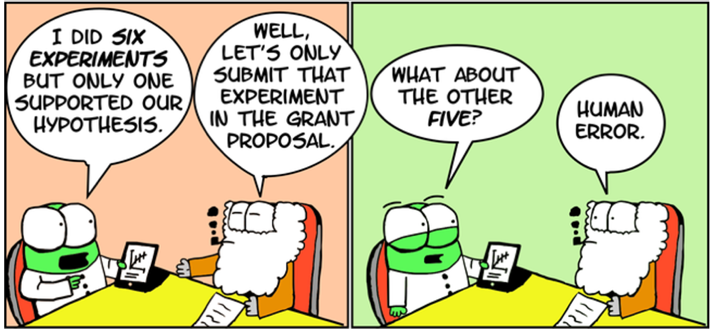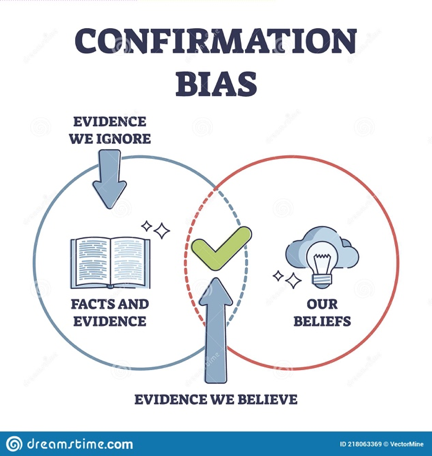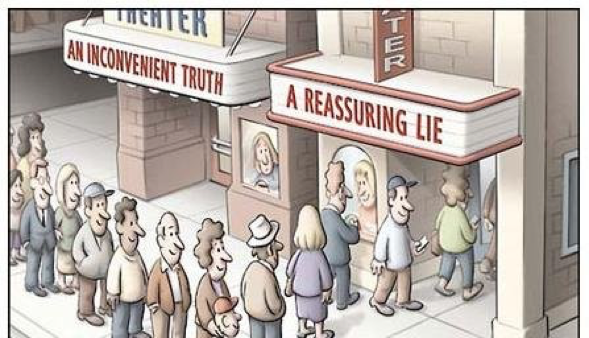


Where do you look for your news and information about current events? Television, streaming, radio, newspapers, social media feeds, magazines, family, friends? How many different sources do you use on a regular basis?
Do you hear the same stories and perspectives from the sources you use? Do they usually support what you already know and believe? If the answer to the last two questions is “yes”, you’re likely living in an “echo chamber.” Why might that be important to reflect on?
According to the Oxford Languages Dictionary, an echo chamber is:
This article is focused on the second definition.
Social media (think FaceBook, Instagram, LinkedIn, etc.) use our past behaviour to train the algorithms that prioritise content on our feeds so that you end up seeing content similar to what you’ve liked or lingered on the past. It’s often blamed for creating echo chambers but social media is simply amplifying our own human tendencies to prefer the familiar and stay in our comfort zones. Non-social media users are also at risk of being in their own echo chambers if the information they access is limited to a few constant sources like a single newspaper or television station. The risk is magnified if your friends also share your views and no alternative views are raised or available.

The consequences can be extreme. Think about the United States where millions of eligible voters still believe that President Trump actually won the last election despite abundant factual evidence indicating that President Biden won. So, what is going on?
Say "hello" to confirmation bias! Turns out that each of us creates a mental model of the world and our brains are wired to reinforce that to a certain extent to conserve energy. This is necessary as we are bombarded with so much information at every moment that we need to filter out what we think we already know - the routine stuff - to focus on processing the information that is needed to complete the task at hand while being vigilant about our physical safety. Think about how often you have taken the same route home from work – it’s like being on auto-pilot and you don’t need to consciously think about where to turn. This is fine if everything remains the same, but we know that conditions do change. When roadworks are in progress on our usual route, for example, we need to actively consider alternative routes, consider their relative merits and then decide to take a different way home.

When it comes to news and information about current events, one way to disrupt confirmation bias is to scan a wide range of sources. For example, even though you might be an avid Bailiwick Express reader, you could read the JEP, Channel Eye, BBC and ITV to get a range of perspectives on what is happening in Jersey. For global events, there is a wide range of UK-based newspapers, television and radio - branching out to look at coverage by other countries in other regions of the world is also helpful to access a broader range of perspectives. This type of broad scanning requires a lot of time and mental energy to maintain on a continual basis. Are there other ways to break out of an echo chamber?
I looked at Matthew Syed’s work and the importance of having a diversity of perspectives to optimise problem solving and team performance while avoiding group think in an organisational setting in my November 2021 article – Rebels, Clones and hiPPOs – see https://www.jerseypolicyforum.org/static/files/Think%20Tank%20Nov%202021.pdf. Surrounding yourself with people who think differently from you when interpreting what is changing in the world is a good strategy and almost invariably leads to new learnings if one keeps an open mind and is prepared to actively listen to different views.

Deliberately challenging your own perspective by actively looking for “discomfirming evidence” – evidence that fundamentally contradicts your mental model of the world – is another way favoured by author Daniel Khaneman as described in his book Thinking Fast and Slow. Inviting someone to play devil’s advocate is yet another way.
Here’s a challenge: take an issue you care about and then actively seek out and consider alternative perspectives. The result might surprise you…and encourage you to keep doing it as we navigate through the continual changes in our landscape!
This article first appeared in the April edition of Connect magazine, which you can read here.
Comments
Comments on this story express the views of the commentator only, not Bailiwick Publishing. We are unable to guarantee the accuracy of any of those comments.